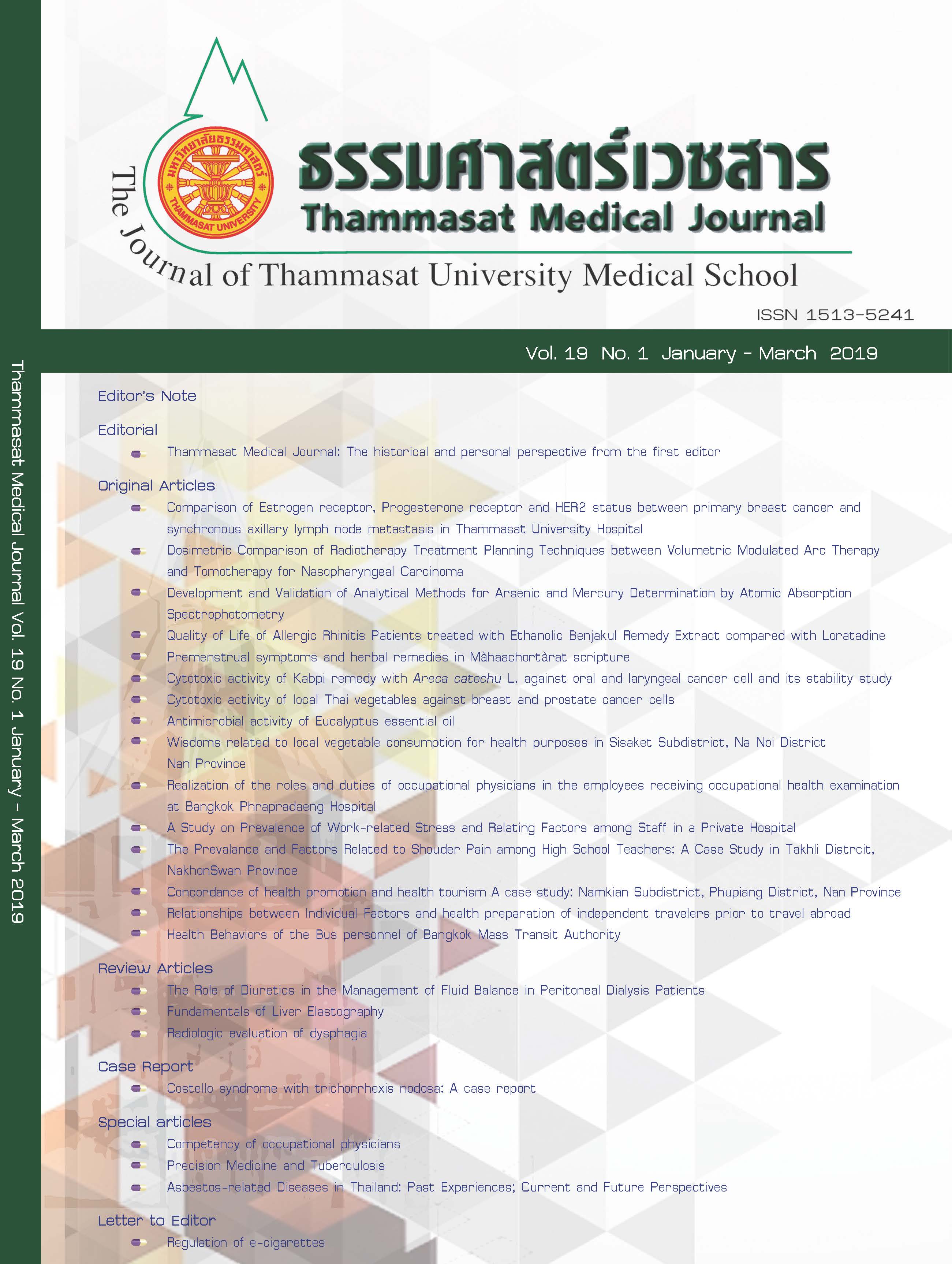Quality of Life of Allergic Rhinitis Patients treated with Ethanolic Benjakul Remedy Extract compared with Loratadine
Keywords:
Quality of Life, Benjakul Extract, Allergic Rhinitis, LoratadineAbstract
Introduction: Benjakul scripture consists of 5 herbs i.e. Piper longum fruits, Piper sarmentosum roots, Piper interruptum vines, dried Zingiber officinale rhizomes and Plumbago indica roots. Previous study showed that 95% ethanol Benjakul extract reduced release of β-hexosaminidase in RBL-2H3 rat basophilic leukemia cells and indicated that the Benjakul extract could reduce allergic activity. Therefore, the ethanolic Benjakul extract could be used to replace synthetic drug and improve quality of life of patients with allergic rhinitis (AR) by decreasing rhinitis symptoms than conventional drugs are commonly used.
Objective: To investigate quality of life of AR patients receiving ethanolic Benjakul extract compared with those treated with loratadine.
Methods: This study was approved by the human ethics committee of Thammasat University No. I (Faculty of Medicine). In this study, 60 patients who were diagnosed with allergic rhinitis by otolaryngologist were recruited. The patients were divided into two groups. Experimental group received 300 milligrams (mg)/day of the Benjakul extract and Control group treated with 10 mg/day of loratadine for 6 weeks. All patients were measured quality of life follow as Rhinoconjuctivitis Quality of Life questionnaires (RCQ-36) at 0, 3 and 6 weeks and all data were analyzed with
statistics.
Results: After the group treated for 6 weeks, quality of life of the AR patients treated with the Benjakul extracts did not differ those receiving loratadine. Moreover, the patients receiving the Benjakul extract significantly improved quality of life by reducing Rhinitis symptoms (RS), Other symptoms (OS), Eye symptoms (ES), Physical functioning (PF), Role Limitation (RL), Sleep, Social functioning (SF), Emotions (E) and Overall health (OH) at 3 weeks and 6 weeks of treatment (p < 0.05). The results concluded that the Benjakul extract increased the quality of life of the AR patients.
Conclusion: The Benjakul extract reduced rhinitis symptoms (RS) and improved quality of life of allergic rhinitis patients after treatment for 6 weeks. Thus, the ethanolic Benjakul extract could be a drug of choice for treating allergic rhinitis.


